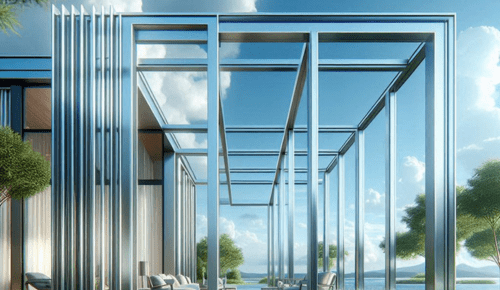Benefits of Proper Ventilation in Commercial Properties
Proper ventilation in commercial properties not only enhances the comfort of occupants but also plays a crucial role in maintaining a healthy indoor environment. By effectively removing stale air, pollutants, and excess moisture, ventilation systems contribute to reducing the risk of indoor air quality issues such as mold growth, odors, and the build-up of harmful contaminants. In addition, optimal ventilation helps regulate temperature levels, creating a more pleasant and productive workspace for employees and visitors alike.Furthermore, investing in proper ventilation for commercial properties can result in long-term cost savings. By efficiently circulating air and controlling humidity levels, ventilation systems can help prevent structural damage caused by condensation and mold, ultimately extending the lifespan of the building materials and reducing the need for frequent repairs or replacements. Improved ventilation also aids in maintaining equipment efficiency and longevity, reducing energy consumption, and enhancing overall operational performance for businesses within the property.
Commercial Ventilation systems in commercial properties enhance comfort and maintain a healthy indoor environment. By removing pollutants and excess moisture, ventilation reduces the risk of air quality issues like mold growth and odors. Optimal ventilation also regulates temperature levels, creating a pleasant and productive workspace while saving costs in the long run.
Importance of Air Quality in Commercial Buildings
Ensuring high air quality in commercial buildings is paramount for the health and well-being of occupants. Poor air quality can lead to various health issues such as allergies, respiratory problems, and fatigue, ultimately impacting productivity and satisfaction levels. Moreover, poor ventilation can result in the buildup of pollutants, odors, and excess moisture, creating an uncomfortable and potentially hazardous environment for individuals within the space.In addition to the health implications, the quality of indoor air in commercial buildings can also affect the longevity and condition of the property itself. Proper ventilation helps in controlling humidity levels, preventing the growth of mold and mildew, and reducing the risk of structural damage. By investing in effective ventilation systems and prioritizing air quality, businesses can not only create a more comfortable and safe environment for their employees and customers but also protect the integrity of their property in the long run.
Factors to Consider When Choosing Ventilation Systems for Commercial Properties
When choosing ventilation systems for commercial properties, one crucial factor to consider is the size and layout of the space. The ventilation system must be able to effectively circulate air throughout the entire building, ensuring consistent airflow and adequate fresh air intake. Additionally, the number of occupants in the building should be taken into account to determine the appropriate ventilation capacity required to maintain good indoor air quality.Another key consideration is the specific airflow requirements of the different areas within the commercial property. Spaces such as kitchens, bathrooms, and conference rooms may have varying ventilation needs due to differences in activities and potential air pollutant levels. Tailoring the ventilation system to meet these specific requirements can help optimize air quality and ensure a comfortable and healthy indoor environment for occupants.
Types of Ventilation Systems Suitable for Commercial Buildings
One common type of ventilation system suitable for commercial buildings is the exhaust ventilation system. This system works by using fans to pull air out of the building, allowing fresh outdoor air to replace it. Exhaust ventilation is effective in removing pollutants and excess moisture from the indoor environment, promoting better air quality.Another suitable option is the supply ventilation system, where outdoor air is brought into the building through a fan or duct. This method helps control the indoor air quality by diluting contaminants and regulating humidity levels. By supplying fresh air into the space, this system ensures a constant circulation of clean and healthy air, creating a more comfortable working environment for occupants.
Energy-Efficient Ventilation Solutions for Commercial Properties
Energy-efficient ventilation solutions play a vital role in enhancing the indoor environment of commercial properties. By utilizing systems that are designed to minimize energy consumption while effectively circulating fresh air, businesses can improve air quality and reduce utility costs simultaneously. Investing in energy-efficient ventilation not only benefits the environment but also contributes to creating a more comfortable and productive workspace for employees and customers.One popular energy-efficient ventilation solution for commercial properties is the use of demand-controlled ventilation systems. These systems adjust the amount of fresh air brought into a building based on occupancy levels and specific air quality requirements. By tailoring ventilation to actual needs rather than running continuously at a set rate, businesses can optimize energy usage and ensure a healthier indoor environment.
Natural Home Solutions offer energy-efficient ventilation solutions for commercial properties. These systems are designed to minimize energy consumption while effectively circulating fresh air, improving air quality, reducing utility costs, and creating a more comfortable and productive workspace for employees and customers.
Tips for Maintaining Ventilation Systems in Commercial Buildings
Maintaining ventilation systems in commercial buildings is essential for ensuring optimal indoor air quality and the overall comfort of occupants. Regularly changing air filters is a simple yet crucial task that can significantly improve the performance of ventilation systems. Clogged filters can restrict airflow and reduce the system’s efficiency, leading to poor air quality and potential equipment malfunctions. By following a schedule to replace filters, building owners can promote a healthier environment and prolong the lifespan of their ventilation systems.In addition to filter maintenance, cleaning vents and ducts is another key aspect of keeping ventilation systems in top condition. Over time, dust, debris, and other contaminants can accumulate in ductwork, obstructing airflow and diminishing indoor air quality. Regularly inspecting and cleaning vents can prevent these issues, ensuring that the ventilation system operates efficiently and effectively. Professional duct cleaning services may also be recommended to remove stubborn buildup and improve overall system performance.
Common Ventilation Issues in Commercial Properties
In commercial properties, inadequate ventilation can lead to a range of issues that impact both the comfort of occupants and the overall efficiency of the building. Poor ventilation may result in stuffy and stale air, leading to discomfort and potentially affecting productivity. Moreover, insufficient airflow can create an environment where pollutants, allergens, and pathogens linger, posing risks to the health and well-being of those within the space.Another common ventilation issue in commercial properties is imbalanced air distribution. Uneven airflow can cause certain areas of the building to be too hot or too cold, leading to discomfort and potential conflicts among occupants. Additionally, improper distribution of fresh air can result in pockets of stagnant air where moisture accumulates, creating a breeding ground for mold and mildew. This not only impacts indoor air quality but also poses significant maintenance challenges for the property management team.
Improving Indoor Air Quality in Commercial Buildings
One crucial aspect of maintaining a healthy indoor environment in commercial buildings is ensuring optimal air quality. Poor indoor air quality can lead to various health issues among occupants, including respiratory problems, allergies, and fatigue. To address this, implementing proper ventilation systems is essential to enhance air circulation and reduce the concentration of indoor pollutants.Moreover, regular maintenance of ventilation systems is paramount in improving indoor air quality. Routine inspections, cleaning of filters, and prompt repairs of any issues are vital to ensure that ventilation systems operate efficiently. By investing in the upkeep of ventilation systems, commercial property owners can create a comfortable and healthy indoor environment for occupants, ultimately boosting productivity and well-being within the workspace.
Regulations and Standards for Ventilation in Commercial Properties
When it comes to ensuring optimal air quality and ventilation in commercial properties, adhering to regulations and standards is crucial. These regulations are put in place to safeguard the health and well-being of occupants, as poor indoor air quality can lead to various health issues and discomfort. By following these regulations, building owners can create a safe and healthy environment for employees, customers, and visitors.Regulations and standards for ventilation in commercial properties often outline requirements for air exchange rates, filtration systems, maintenance protocols, and more. It is essential for building owners to stay informed about these regulations and work with knowledgeable professionals to ensure compliance. Failure to meet these standards can result in fines, legal liabilities, and potential harm to occupants. Prioritizing ventilation standards not only promotes a healthy indoor environment but also contributes to the overall well-being and productivity of individuals within the commercial space.
Consulting Professionals for Ventilation Solutions in Commercial Buildings
When faced with the task of enhancing ventilation solutions in commercial properties, seeking the expertise of professionals becomes paramount. The intricate nature of ventilation systems, coupled with the need for efficiency and compliance with regulations, makes consulting specialists a crucial step towards achieving optimal indoor air quality. Professional consultants bring a wealth of experience and knowledge that can streamline the process, ensuring that the chosen ventilation solutions are tailored to the specific needs of the commercial building.Moreover, collaborating with ventilation professionals can offer valuable insights into the latest industry developments and innovative technologies. By staying abreast of advancements in ventilation systems, consultants can present cutting-edge solutions that not only improve air quality but also contribute to energy efficiency and sustainability goals. Their expertise can pave the way for cost-effective and reliable ventilation installations, putting commercial property owners in a better position to create a healthy and comfortable indoor environment for occupants.




